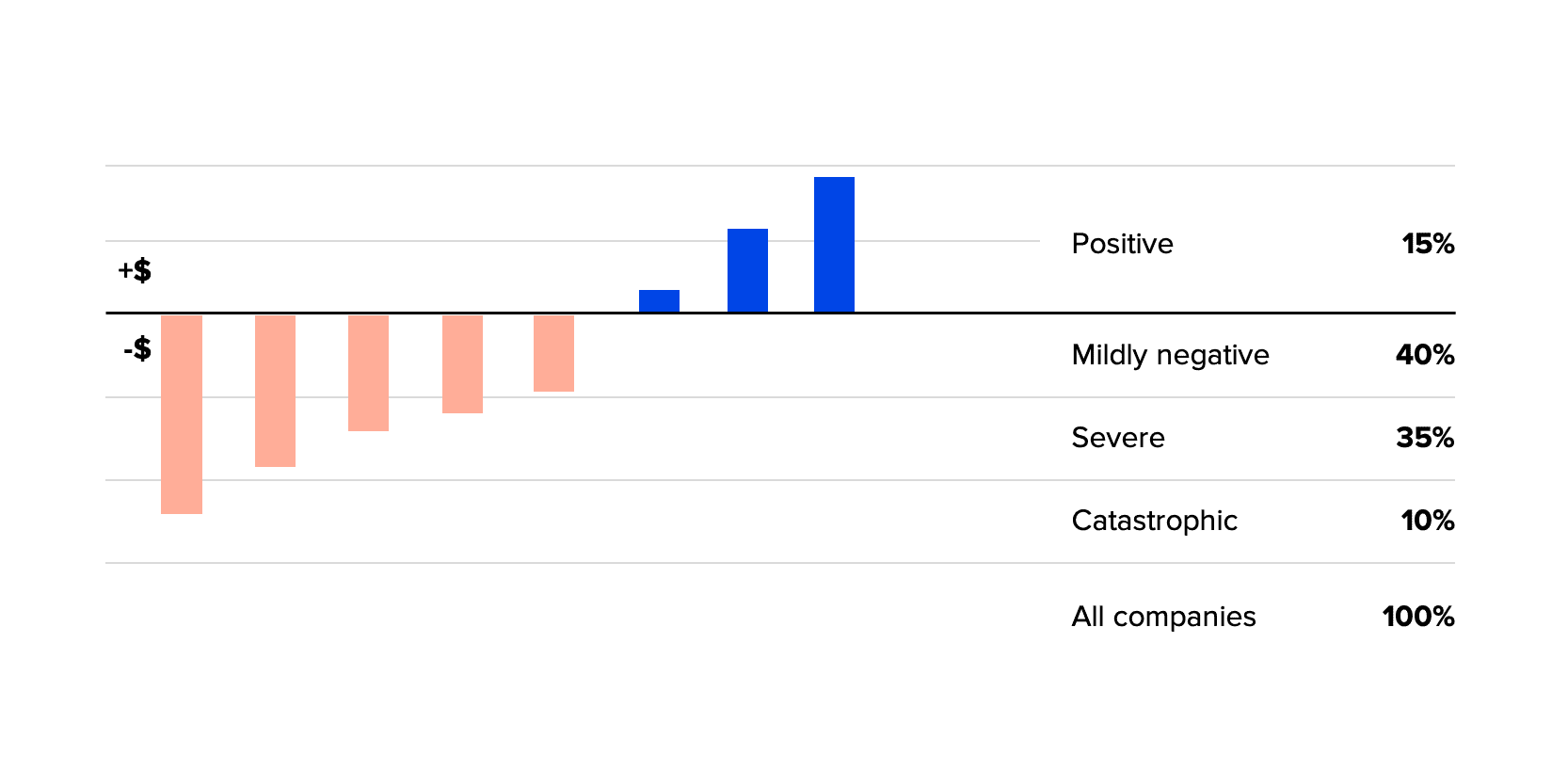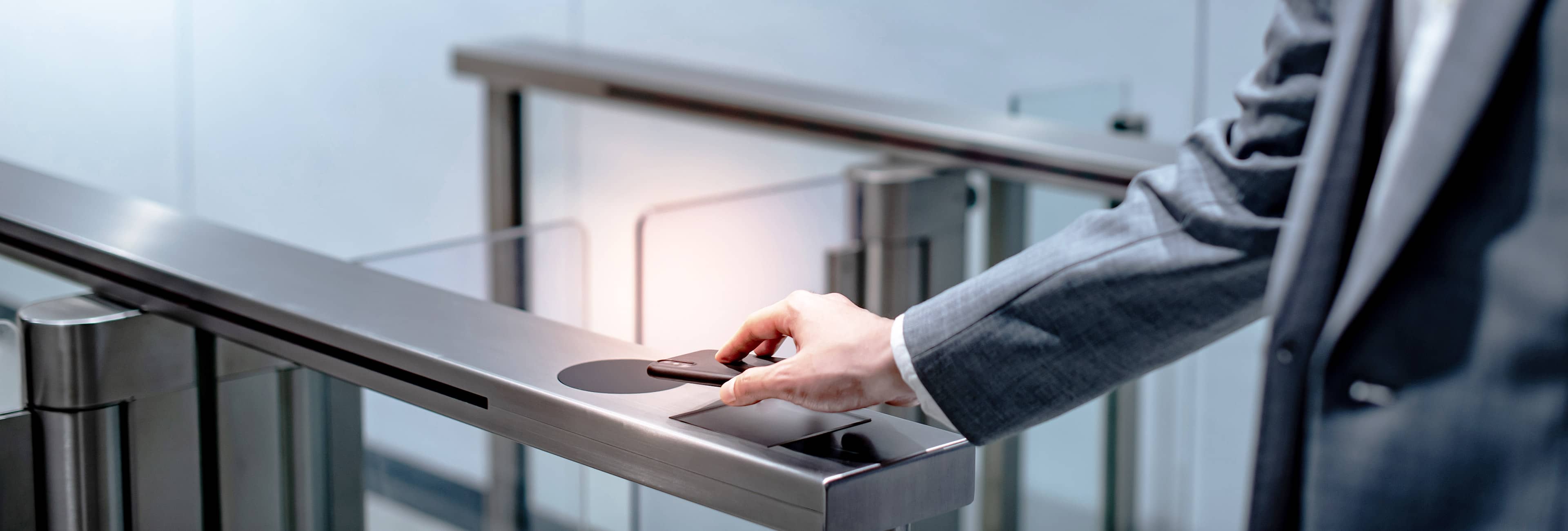
The low-touch economy describes the ways in which global businesses have had to evolve their processes and behaviours to overcome the challenges posed by the coronavirus. But, according to a recent report by the Board of Innovation, only 15% of companies are succeeding in implementing the changes needed to survive in the current economy.
The pandemic has presented significant roadblocks for many, not least the inability to connect with customers and the drop in demand for certain products and services – resulting in a loss of income.
The limitations on physical interaction have, however, paved the way for agile and innovative companies to find solutions to this new challenge. The “new normal” has transformed industries and consumer habits, launched new technologies and expedited flexible working scenarios in a way that we couldn’t have foreseen before the pandemic struck. What’s more, far from hunkering down and rejecting shopping altogether, customers are more willing to try new products and services than ever before.
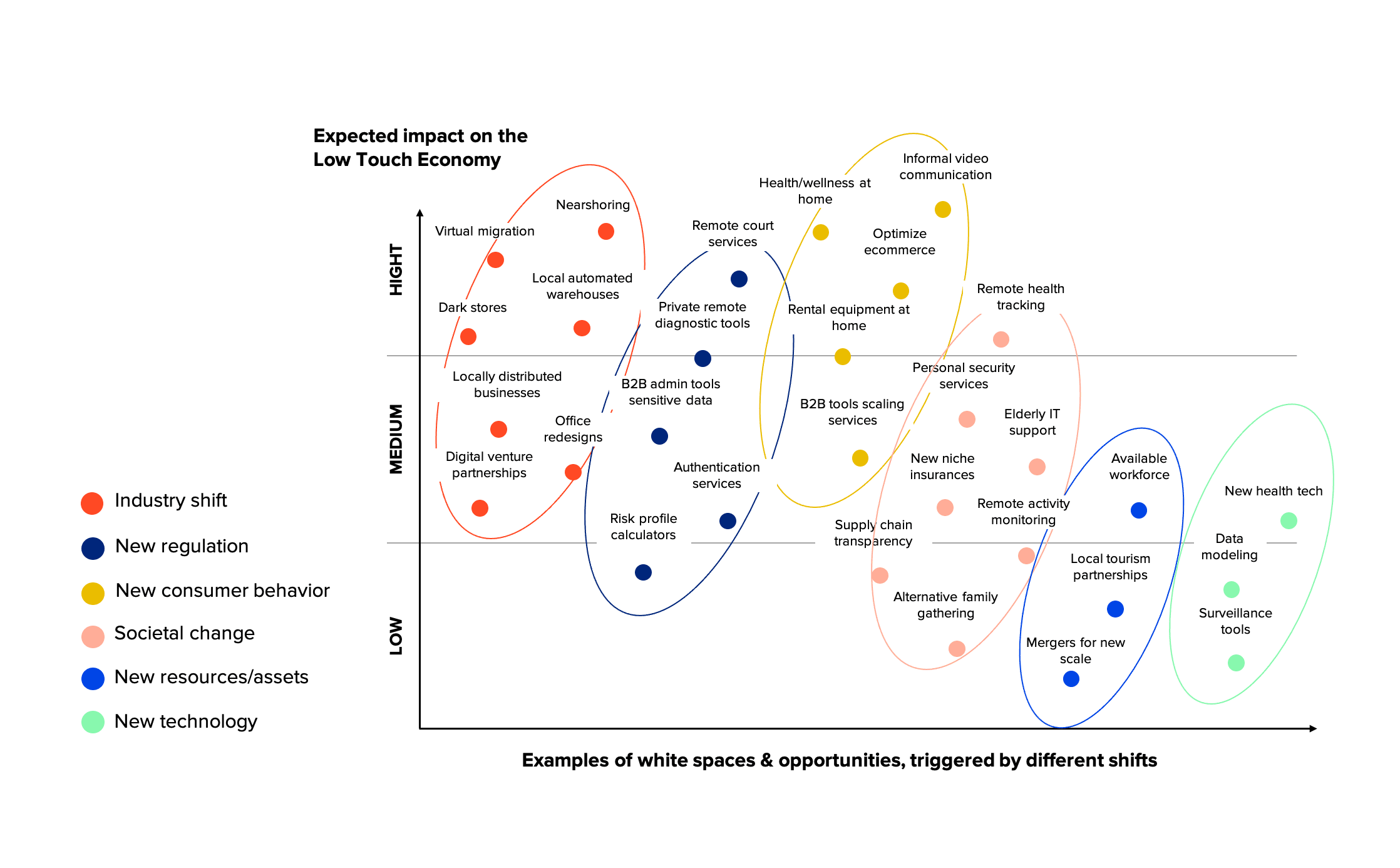
Source: The winners of low-touch economy report by Board of Innovation.
Businesses can’t ignore tech trends any longer, because they now offer enterprises more than just nice-to-have benefits. Technological innovations have been helping companies with day-to-day operations, with the delivery of new products and services, and with mitigating the risks posed by the current situation.
For instance, technology has been helping off-limits brick-and-mortar stores to continue to provide their customers with products and services. Technologies have also helped retailers create a more secure space within their physical stores, for example, thermal screening technology, touchless solutions like contactless payments, voice assistants, etc. Then, of course, there’s the vast potential of taking stores online, which has been the key to many companies' survival during the past eleven months.
How can technologies promote the low-touch economy?
Some of the most fundamental ways in which the low-touch economy can impact everyday life and business operations are:
- safety
- social distancing measures
- closure of physical points of sale
So here’s how technologies can help companies redesign their business model to bounce back from this crisis and, indeed, thrive.
1. Ensuring safety and minimising physical interactions
Though we’re far from back to normal, society has gradually begun to reboot following stay-at-home directives. Innovative technology solutions can and are contributing to a more streamlined and safe return to public spaces and workplaces. So far, tech has been aiding:
Disinfection and sanitation
Robots, for example, can prevent the spread of the virus indoors. Equipped with ultraviolet-C (UVC) lights and multiple light detection and ranging (LiDAR) sensors — used to create a digital map of a location — robots are navigating their surroundings using simultaneous localisation and mapping (SLAM) technology. What’s more, an operator can modify a map to indicate particular areas that need extra attention.
Management of the thermal screening process
According to MarketsandMarkets, the global thermal scanner market was valued at $4.1 billion in 2020 and is projected to reach $6.2 billion by 2025.
Temperature measurement has become a standard procedure at entry points to many public places and thermal screening systems can modernise this typically time-consuming process, while reducing the risk of infection. Thermal technologies can simultaneously check the body temperatures of a large number of people, using IoT sensors and heat cameras to scan an individual’s temperature, then send notifications if a fever is detected.
Maintaining social distancing
It’s hard to imagine how society could have responded to physical distancing without tech. Here are just a few examples of how organisations have deployed low-touch economy technologies to keep consumers safe and business running smoothly:
- Implementing contactless payments via a smartphone or device and voice-controlled interfaces, which minimise the need to touch surfaces;
- Restaurants and cafés using QR codes to allow customers to access menus;
- In-store AR technologies which enable virtual try-before-you-buys and eliminate the need to physically test products;
- Unstaffed stores, made possible thanks to apps with virtual carts, and shopping carts with a built-in technology that allows users to make payments on the go;
- Deliveries made using drones and robots;
- Workflow automation, which prevents close contact and enables continued business operations;
- Digital twin technology that can emulate a patient’s health condition and assists doctors in identifying the best course of treatment.
2. Enabling successful transfer to a digital environment
Technology shaped the digital era we live in today. Now, it’s responsible for safeguarding organisations’ business continuity during these unprecedented times. Some of the ways in which it’s doing so are:
Offering virtual services that are as good as real ones
Digital services have never been as important as they are now — and they’re here to stay. According to a survey by Salesforce Inc., 58% of respondents are eager to continue shopping online following the pandemic. AR technologies enable virtual try-before-you-buy features, which allow consumers to interact with an item — creating a more personal and realistic shopping experience.
Travel and entertainment have been among the industries most heavily impacted by the global lockdowns. But tech solutions have offered them hope of a rebound. VR solutions can allow users to attend live concerts and travel to desired destinations — albeit virtually. And, while VR can’t replace a real life experience, it does create something novel and uniquely engaging.
Providing a secure environment for remote work
43% of full-time employees would like to work from home more often, even after the economy reopens. Yet, while companies are deploying systems and networks to support employees to work remotely, the number of cyberattacks is growing. According to IBM, the average cost of a data breach while remote working is $137,000. Thus, it’s vital for companies to have a cyber resilience framework that can prevent attacks from happening in the first place.
Conclusion
Adapting your business to the low-touch economy means that you can remain flexible, innovate and able to operate under ever-evolving circumstances, by reducing the physical interactions between you and your customers. That said, launching an innovative new business model can be challenging.
If you’d like to find out how your company can leverage low-touch solutions to meet the developing crisis, contact us today.

Related Insights




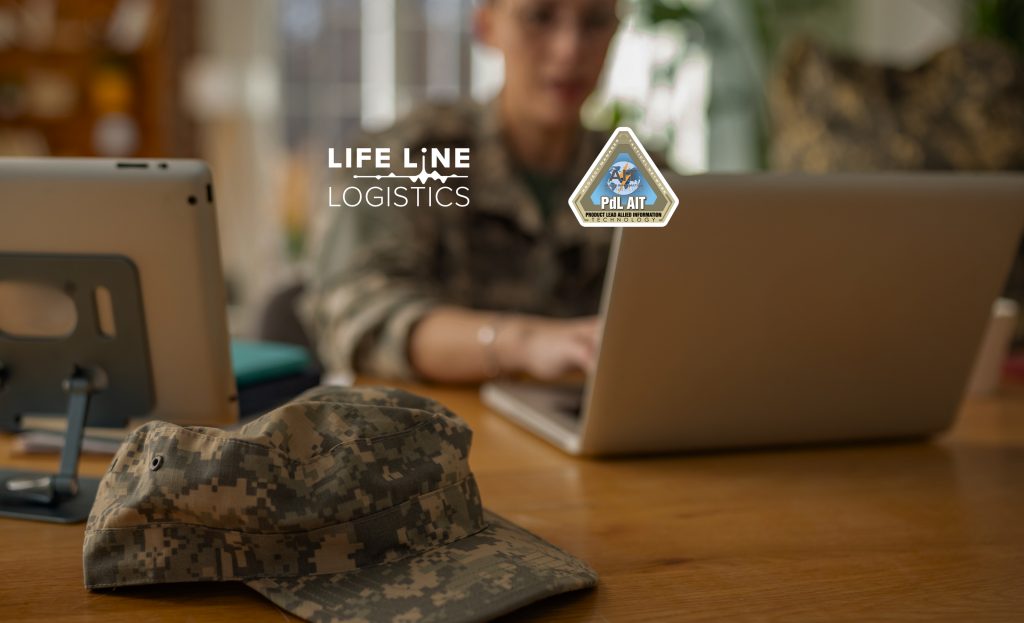
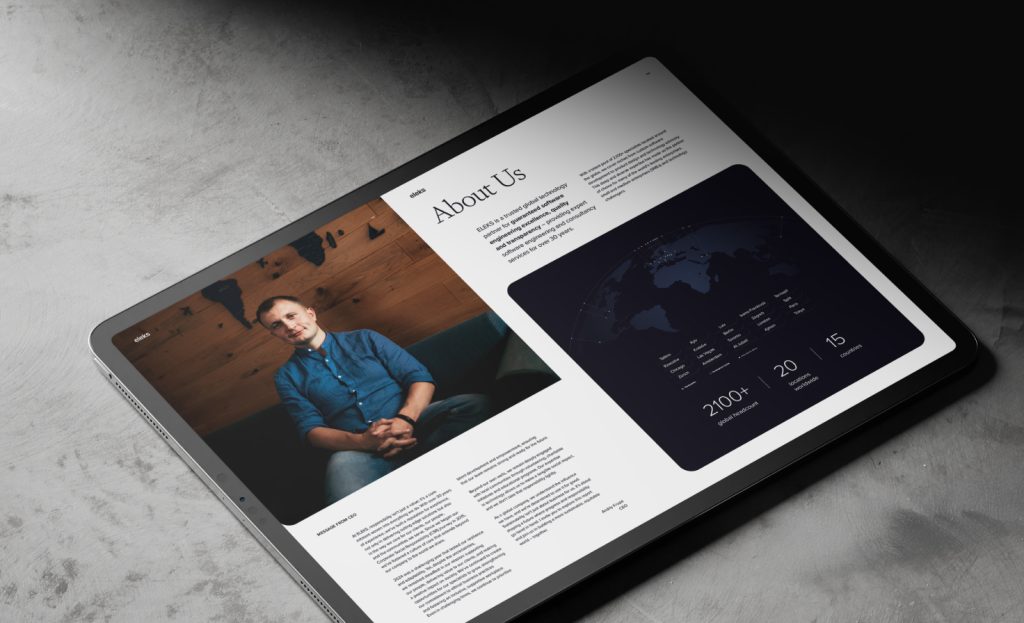

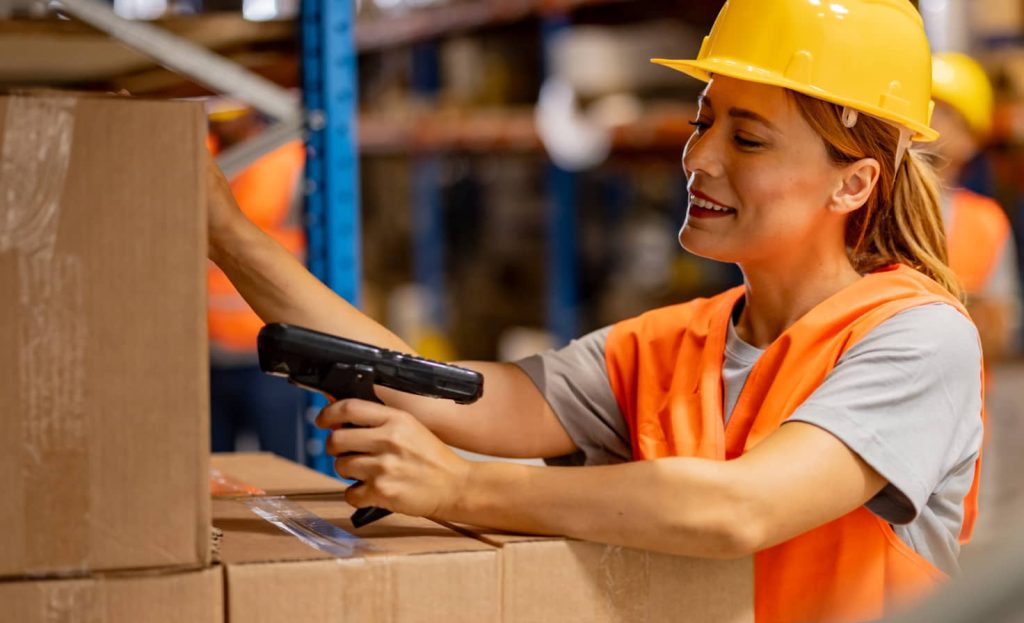
The breadth of knowledge and understanding that ELEKS has within its walls allows us to leverage that expertise to make superior deliverables for our customers. When you work with ELEKS, you are working with the top 1% of the aptitude and engineering excellence of the whole country.

Right from the start, we really liked ELEKS’ commitment and engagement. They came to us with their best people to try to understand our context, our business idea, and developed the first prototype with us. They were very professional and very customer oriented. I think, without ELEKS it probably would not have been possible to have such a successful product in such a short period of time.

ELEKS has been involved in the development of a number of our consumer-facing websites and mobile applications that allow our customers to easily track their shipments, get the information they need as well as stay in touch with us. We’ve appreciated the level of ELEKS’ expertise, responsiveness and attention to details.

